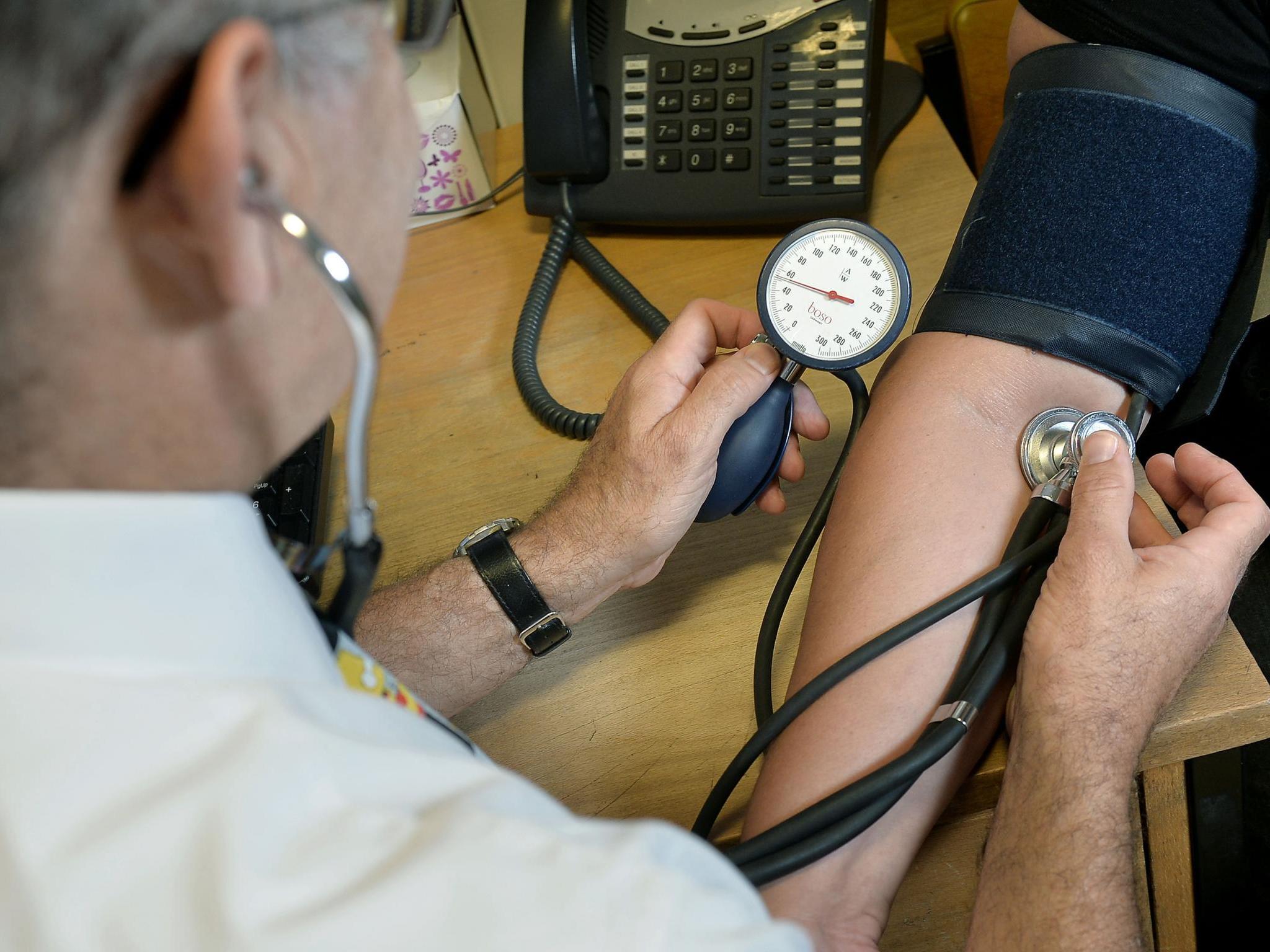DWP plans to obtain people’s medical data will deter benefit claimants accessing healthcare, doctors warn
GPs and charities say plans resemble controversial data-sharing scheme between Home Office and NHS and risks putting medical staff in ‘invidious’ position of benefits assessors

Your support helps us to tell the story
From reproductive rights to climate change to Big Tech, The Independent is on the ground when the story is developing. Whether it's investigating the financials of Elon Musk's pro-Trump PAC or producing our latest documentary, 'The A Word', which shines a light on the American women fighting for reproductive rights, we know how important it is to parse out the facts from the messaging.
At such a critical moment in US history, we need reporters on the ground. Your donation allows us to keep sending journalists to speak to both sides of the story.
The Independent is trusted by Americans across the entire political spectrum. And unlike many other quality news outlets, we choose not to lock Americans out of our reporting and analysis with paywalls. We believe quality journalism should be available to everyone, paid for by those who can afford it.
Your support makes all the difference.Doctors have warned that benefit claimants could be deterred from accessing healthcare after it emerged that the government is to start accessing medical records as part of the welfare assessment process.
The Department for Work and Pensions (DWP) is in the process of creating a system to more quickly access people’s health data to help them to determine how much welfare support they are entitled to, including automating “routine” requests for medical information.
GPs and charities said the plans resemble the controversial data-sharing scheme between the Home Office and the NHS, which prompted outrage after it emerged some immigrants were subsequently afraid to access healthcare, ultimately forcing the government to end the policy.
A job advert posted by the DWP shows that a team in Leeds is building a system to “capture information from citizens and present this to DWP agents”. The work is proceeding on the assumption that the consent of patients would make the system lawful, although this has not been confirmed.
In response, Professor Helen Stokes-Lampard, chair of the Royal College of GPs, expressed concern that the process would damage the doctor-patient relationship, and “deter vulnerable people from seeking medical assistance when they need it”.
“We do not hold our patients’ confidential data to help other organisations check their eligibility for welfare, their immigration status, or any other function not related to their health and wellbeing," she said.
“If the reports are true, the DWP, like the Home Office before them, must not consider GP patient data as an open resource to support them to carry out their duties. We are doctors, whose first interest is the care of our patient: we are not border guards, and we are not benefits assessors.”
Head of policy and profile at Law Centres Network, Nimrod Ben-Cnaan, said the sharing of people’s medical records would breach patient confidentiality and put GPs and other medical staff in the “invidious” position of benefits assessors.
“Less than a year ago, the government decided that even its hostile environment policies did not justify sharing migrants’ personal data between NHS and the Home Office, except in very specific circumstances,” he added.
“Now, however, the government plans to share NHS patient data of people who claim health-related benefits with DWP, and to do so automatically. What has changed?
“It is legally and ethically questionable [...] We call on Parliament to take an urgent look at this programme and other planned sharing of NHS patient data with other public bodies.”
Genevieve Edwards, director of external affairs at the MS Society, said that while it was encouraging that the DWP was looking at ways to change the evidence gathering process, the proposals were being considered with an “apparent lack of engagement and transparency”.
“Rather than the DWP or assessors being able to automatically access records, we’d want to see a system which would allow GPs to send data on request, with the patient’s informed consent at every step in the process,” she said.
“Any changes to the data collecting mechanisms must be fully consulted on with disabled people, healthcare professionals and charities.”
A DWP spokesperson said: “No information will be accessed without explicit and informed consent, and to suggest otherwise would misleading. Some patients are happy to share information which is why we are able to use their information to help them claim health related benefits most quickly.
“Anything to make this an easier and quicker experience for claimants would help them, which is why we are simply exploring potential options to improve the current system.”
Join our commenting forum
Join thought-provoking conversations, follow other Independent readers and see their replies
Comments